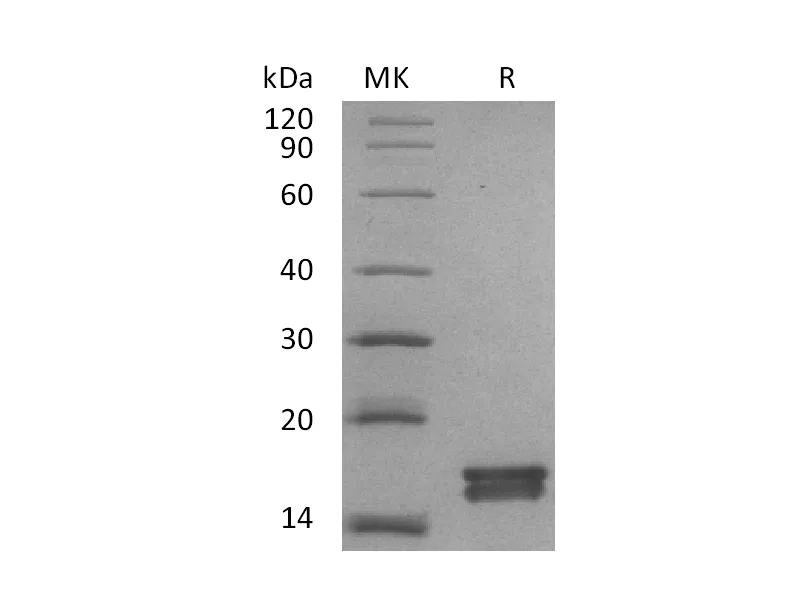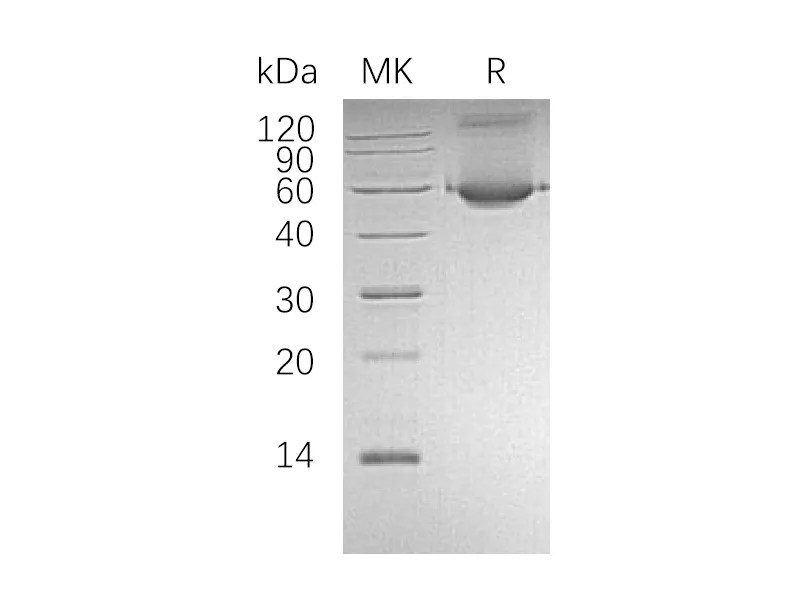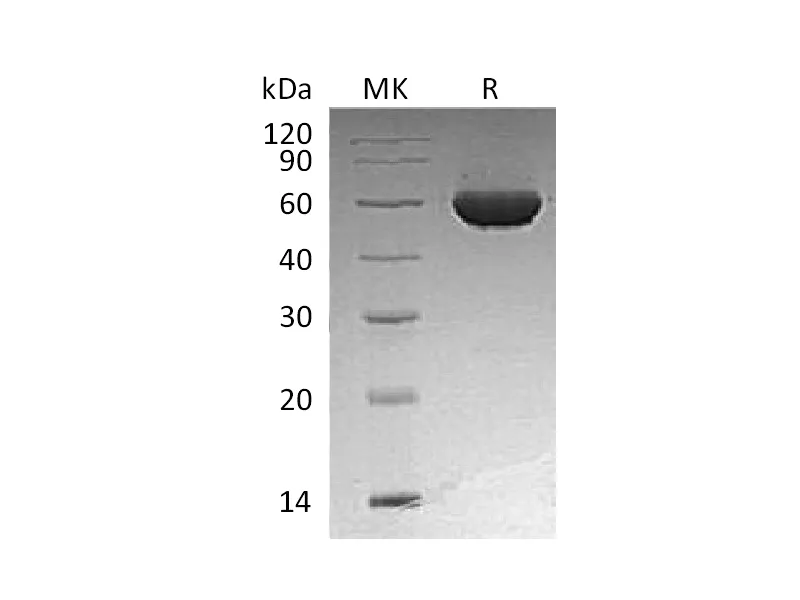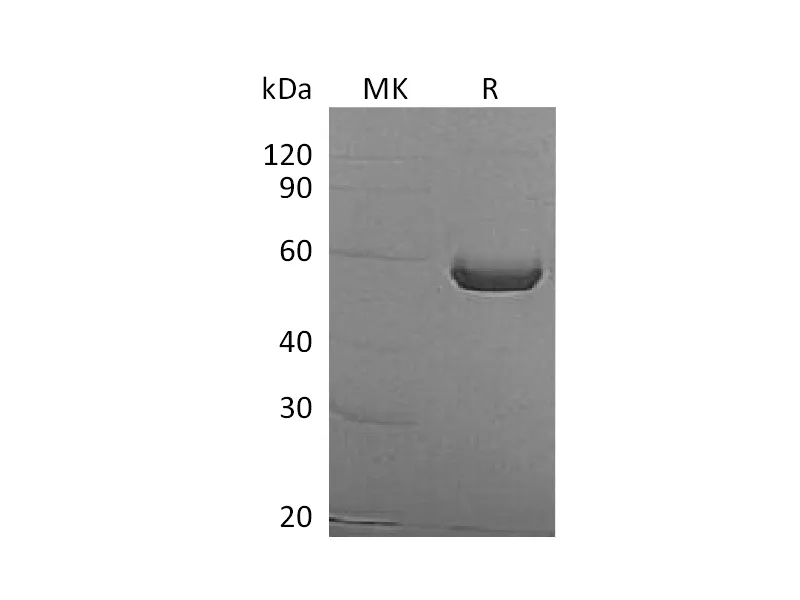Alternative Names
Tumor necrosis factor ligand superfamily member 4; Glycoprotein Gp34; OX40 ligand; OX40L; TAX transcriptionally-activated glycoprotein 1; TNFSF4; CD252; TXGP1
Background
Tumor necrosis factor ligand superfamily member 4(TNFSF4/OX40L) is a single-pass type II membrane protein.OX40L is expressed on the surface of activated B cells, T cells, dendritic cells and endothelial cells. OX40L binds to OX40 (CD134), a member of the TNF receptor superfamily that is expressed predominantly on activated CD4+ T cells. OX40-OX40L co-stimulates signal to promote the survival and proliferation of activated CD4+ T cells and prolong the immune response. It involved in T-cell proliferation and cytokine production. Additional, it has been found association with systemic lupus erythematosus, no association with occurrence of atherosclerosis.
Note
For Research Use Only , Not for Diagnostic Use.




